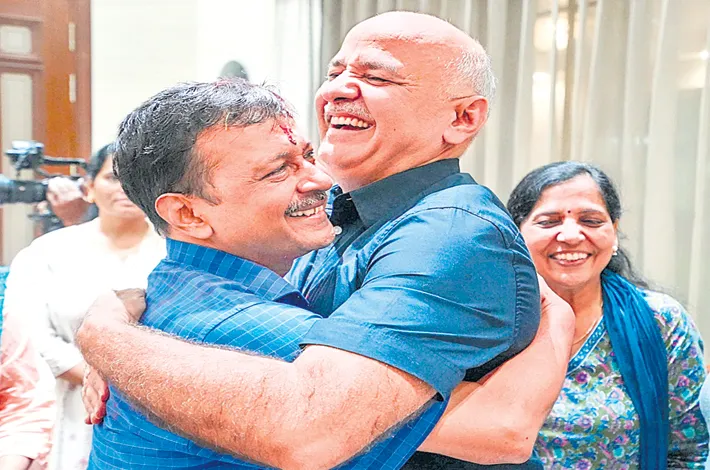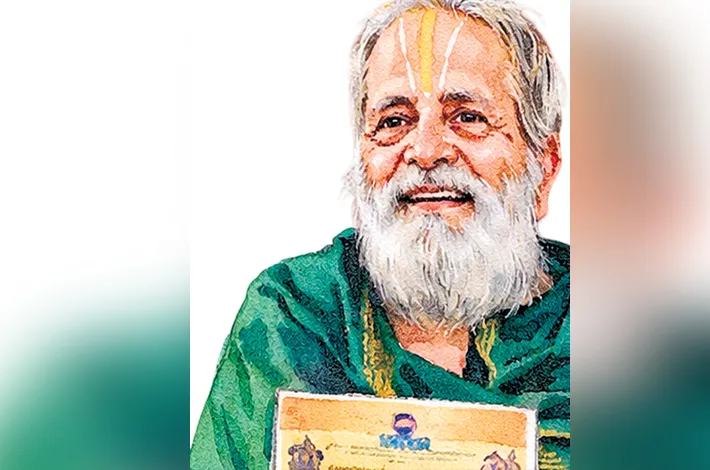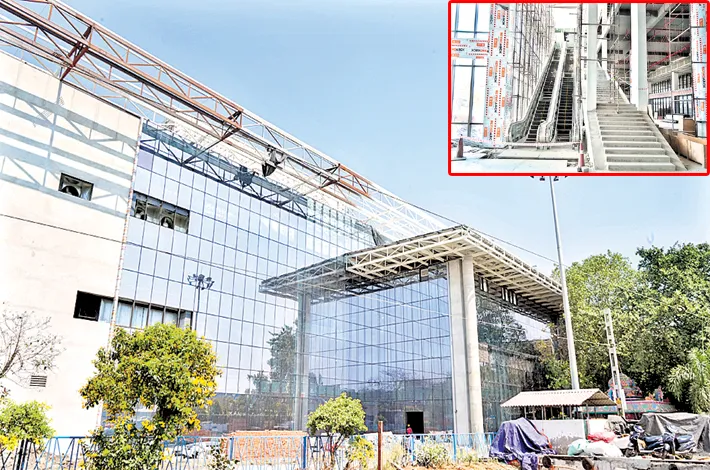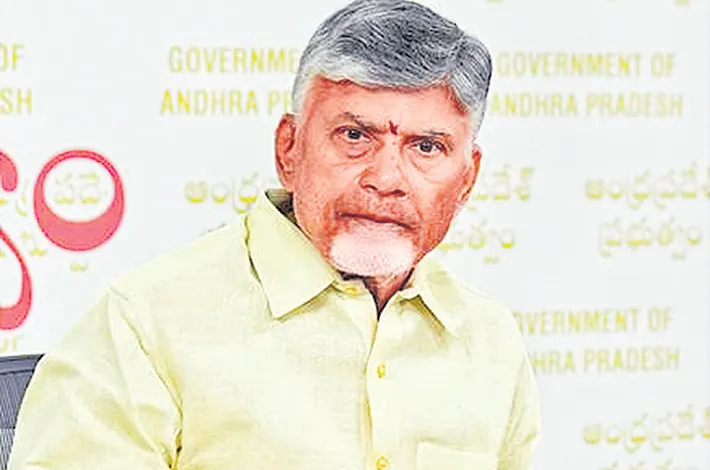Shell companies as political parties ?
29-08-2025 12:17:02 AM
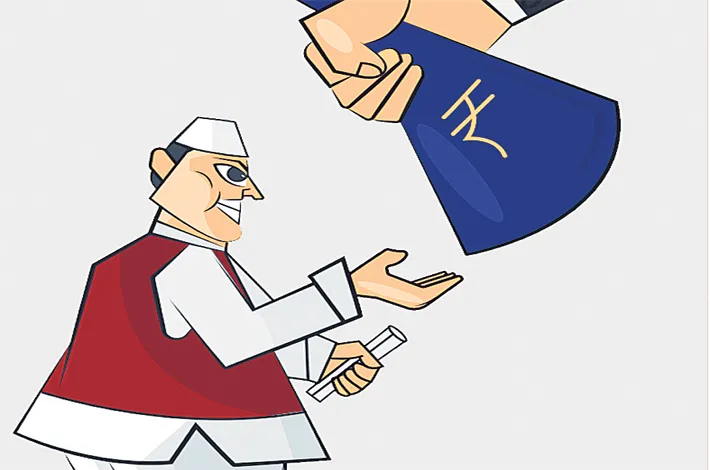
Parties without people, votes without value
Ten parties only on paper, have reportedly received
donations totalling ₹ 4300 crore between 2019-20 and 2023-24
■ The report further notes that these anonymous parties received donations from donors across 23 states,
■ ECI claim an average of ₹2.27 lakh per candidate, totalling approximately ₹9.08 lakh for the four candidates.
Shell parties, hollow democracy
Lokshahi Satta Party ₹1,045 cr
Bharatiya Janparishad ₹177 cr
Saurashtra Janata Party ₹141 cr
vjm divakar I hyderabad :
Sometimes, reality can be strange than fiction! Can anyone imagine that some unregistered, unrecognised political parties in this country have received electoral bonds, donations running to thousands of crore but yet they fielf handful of candidates from their party in the elections! We heard about the Shell companies in the financial frauds, it is time for the Shell political parties.
A staggering financial controversy has emerged in Gujarat, raising serious questions about the integrity of India’s electoral funding system. Reports allege that a politically vested interests group and persons have orchestrated a sophisticated scheme to circumvent election expenditure limits by funneling funds through anonymous, little-known political parties. These parties, often existing only on paper, have reportedly received donations totalling ₹4,300 crore between 2019-20 and 2023-24, with nearly all of it spent, despite their negligible electoral impact. The revelations have sparked widespread outrage and calls for investigation into what some are calling the “biggest crime syndicate” operating under the guise of political activity.
According to a recent report by Dainik Bhaskar, ten registered but unrecognized political parties (RUPPs) in Gujarat collectively received ₹4,300 crore in donations over the five-year period spanning the 2019 and 2024 Lok Sabha elections and the 2022 Gujarat Assembly polls. These parties, including names like Lokshahi Satta Party, Bharatiya National Janata Dal, Swatantra Abhivyakti Party, New India United Party, Satyawadi Rakshak Party, Bharatiya Janparishad, Saurashtra Janata Paksh, Jan Man Party, Manavadhikar National Party, and Gareeb Kalyan Party, fielded a mere 43 candidates across these elections.
Together, these candidates secured just 54,069 votes, a negligible fraction of Gujarat’s electorate. Yet, their audit reports show expenditures of ₹3,500 crore, while their election expenditure filings with the Election Commission of India (ECI) reported a meagre ₹39.02 lakh. This glaring discrepancy has fuelled allegations of benami funding—anonymous donations used to mask the true source of money—and systematic violations of election spending regulations.
The Lokshahi Satta Party stands out as a prime example. According to the Gujarat Chief Electoral Officer’s contribution report, the party received ₹1,045 crore in donations and spent ₹1,031 crore during the same period. Despite this colossal financial activity, the party fielded only four candidates, who collectively garnered just 3,997 votes. Official election expenditure statements filed with the ECI claim an average of ₹2.27 lakh per candidate, totalling approximately ₹9.08 lakh for the four candidates. This figure starkly contrasts with the party’s reported expenditure of ₹1,031 crore, raising questions about where the remaining funds were directed. Critics argue this points to a deliberate strategy to channel unaccounted money into political activities, bypassing the ECI’s expenditure caps, which limit Lok Sabha candidates to between ₹50 lakh and ₹70 lakh and Assembly candidates to between ₹20 lakh and ₹28 lakh.
The allegations point to a broader issue of electoral finance loopholes in India. The ECI imposes spending limits on individual candidates but does not regulate the expenditures of political parties themselves, allowing large sums to be funnelled through party accounts without scrutiny.
A 2018 India Today report highlighted that election funding in India remains an “opaque, black money-driven exercise,” with candidates often underreporting expenses to stay within legal limits. For instance, a former Lok Sabha member admitted to spending ₹8 crore in the 2009 elections, far exceeding the legal cap, while official reports often show candidates spending only 58% of the allowed limit, averaging ₹25 lakh in 2014.
The Dainik Bhaskar report further notes that these anonymous parties received donations from donors across 23 states, with some, like Bharatiya Janparishad (₹177 crore) and Saurashtra Janata Party (₹141 crore), reporting significant election-related expenditures in their audit reports.
Turn on Page 4
However, the lack of detailed breakdowns and the failure of some parties, like Manavadhikar National Party, to submit required reports to the ECI have deepened suspicions of financial impropriety. A 2023 Times of India investigation revealed that several RUPPs in Gujarat admitted to facilitating tax evasion by issuing bogus donation receipts, with intermediaries and shell companies transferring funds under the guise of political activities. These parties often failed to file timely contribution reports, a requirement for tax exemptions under Section 13A of the Income Tax Act, 1961.
Congress leader Rahul Gandhi has seized on these revelations, demanding an ECI investigation into the ₹4,300 crore in donations. In a post on X on August 27, Gandhi questioned, “Where did these thousands of crores come from? Who is running them? And where did the money go?” He further challenged whether the ECI would probe the issue or simply demand an affidavit, referencing a recent dispute where Chief Election Commissioner Gyanesh Kumar asked Gandhi to substantiate claims of electoral irregularities with evidence or issue a public apology.
The now-scrapped electoral bond scheme, declared unconstitutional by the Supreme Court in 2024, had already drawn criticism for enabling anonymous donations without disclosing donor identities. A 2018 India Today report noted that such mechanisms allowed donors to support parties without public accountability, further muddying the waters of electoral finance.
Tax authorities have also taken note. A 2022 Times of India report revealed that over 4,000 taxpayers in Gujarat faced scrutiny for claiming deductions on donations to RUPPs, with investigations uncovering a racket involving 23 unrecognized parties and 35 intermediaries. Chartered accountants and tax consultants were found to be complicit, earning commissions for soliciting donors. These findings align with earlier cases, such as the Apna Desh Party in Uttar Pradesh, where tax authorities discovered misuse of PAN cards to facilitate fraudulent donations.
The ECI has yet to respond to Gandhi’s latest allegations, but the scale of the reported donations and expenditures demands urgent action. With nearly 3,000 RUPPs operating across India, the potential for abuse is vast. Experts like Karim Lakhani, a chartered accountant have called for stricter regulations to curb such activities. Meanwhile, the public awaits answers on whether these anonymous parties are genuine political entities or mere fronts for a larger financial syndicate operating in the shadows of India’s democracy.





